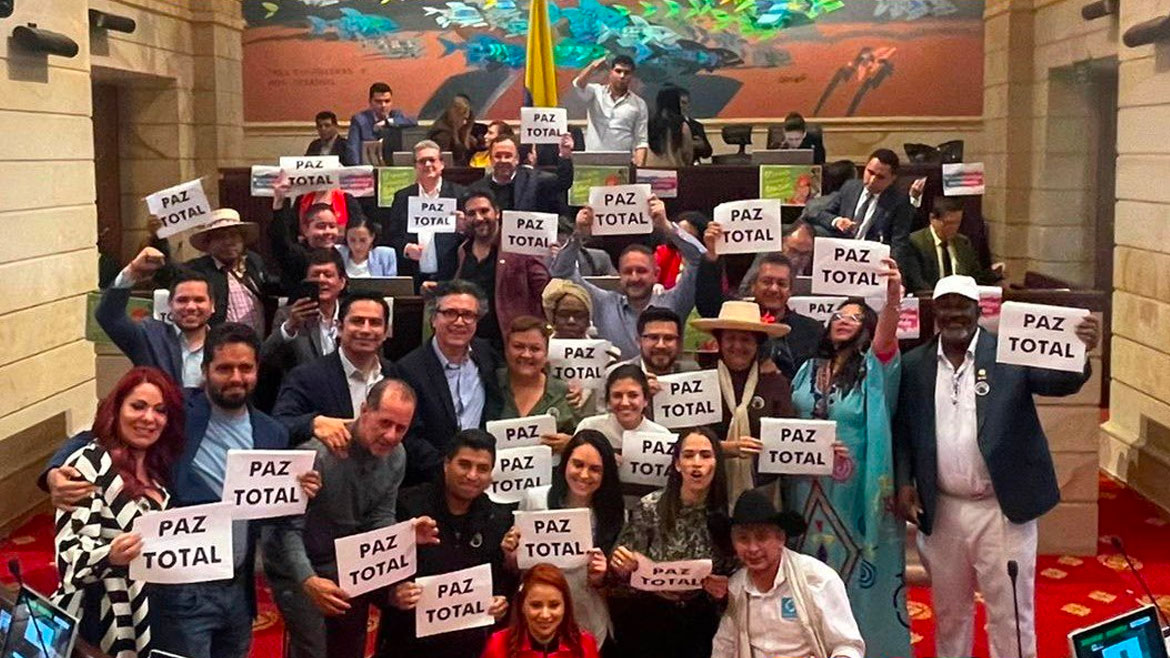Colombia’s constitutional court may strike down the flagship “Total Peace” policy of President Gustavo Petro.
The court revealed it was studying a lawsuit that claimed Congress committed errors in the reform of a public order law to allow negotiations between the government and illegal armed groups.
If the court agrees, Congress would have to redo the reform’s entire legislative process, which would be a major setback for ongoing peace talks.
The news from the court came just days before Petro will decide on whether or not to extend ceasefires with guerrilla groups EMC and Segunda Marquetalia and paramilitary organization Los Pachenca.
These temporary ceasefires took force on January 1 and would have to be formally renewed before July 1.
Las month, the president suspended a ceasefire with the EMC in southern Colombia in response to a guerrilla massacre in the Putumayo province.
Guerrillas request resumption of ceasefire in southern Colombia
Petro suspended a ceasefire with Colombia’s largest paramilitary organization, the AGC, earlier this year.
The government and the illegal armed groups have yet to agree on mechanisms that would allow the monitoring of ceasefires and mediate in the event of breaches.
The warring parties have also yet to formally begin negotiations that would allow the eventual demobilization and disarmament of the illegal armed groups.
At least 18 illegal armed groups showed interest in negotiating their participation in Total Peace after Petro took office in August last year.
The peace policy seeks to end Colombia’s armed conflict and reduce violence caused by organized crime through negotiations with illegal armed groups of all kinds.
This initiative and the ceasefires succeeded a significant reduction in violence in some parts of the country.
Violence has persisted in parts where illegal armed groups have been fighting among themselves.


